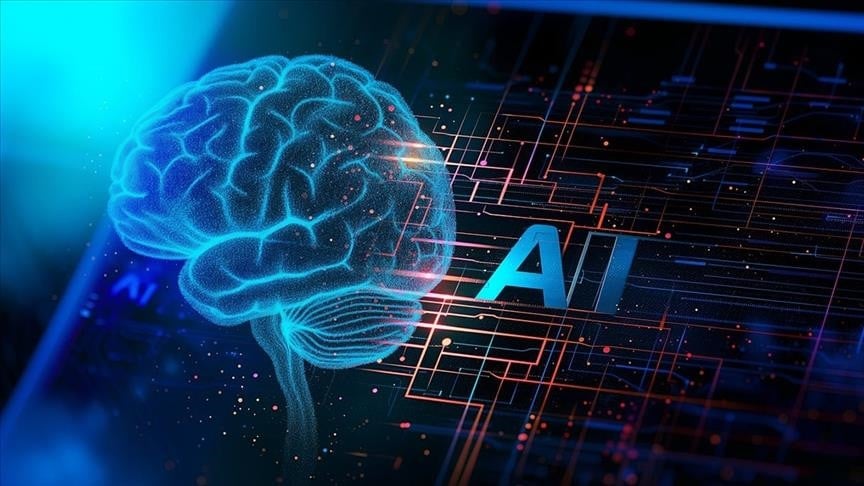
The rise of artificial intelligence (AI) has sparked numerous debates across industries, with some suggesting that AI will completely take over business operations, leading to the extinction of traditional businesses by 2025. The rapid evolution of AI has introduced automation, machine learning, and data-driven decision-making that many believe will leave human-run businesses obsolete. But is this really the case? Should businesses vanish after AI becomes more sophisticated? The answer is far from simple.
This blog post will explore the potential impact of AI on businesses, the role humans still play, and whether businesses should or will disappear by 2025.
For more informational blogs on AI visit Onlyaiblog.com.
The Role of AI in Business Transformation
AI has already revolutionized how businesses operate, offering faster processes, more accurate insights, and increased efficiency. AI-powered technologies like chatbots, predictive analytics, and machine learning algorithms have automated a wide range of business functions, from customer service to supply chain management. But AI isn’t designed to replace businesses—it’s designed to transform and enhance them.
Automation and Efficiency
One of AI’s biggest strengths is its ability to automate repetitive and mundane tasks. This automation allows businesses to focus on more important strategic efforts while AI handles routine work. In customer service, for instance, AI-powered chatbots can resolve common issues, freeing human agents to deal with complex or sensitive cases. In finance, AI can handle transactions, fraud detection, and even forecast financial trends.
However, automation doesn’t mean the end of businesses. Instead, it allows companies to operate more efficiently, deliver better services, and stay competitive in the fast-changing marketplace. Businesses that embrace AI are more likely to thrive than those that resist it.
Data-Driven Decision-Making
AI can process large amounts of data and deliver actionable insights, something no human could do at such a scale or speed. This ability helps businesses make data-driven decisions, reducing guesswork and improving overall accuracy in business strategies. For example, AI can help marketing teams predict customer behavior, allowing them to create more personalized campaigns.
However, while AI can provide insights, it still requires human intuition and experience to interpret those insights correctly. Business leaders use AI as a tool to inform their decisions, but AI alone cannot replicate the critical thinking and emotional intelligence that human decision-makers bring to the table.
AI is a Tool, Not a Replacement
AI is best viewed as a tool that enhances business operations rather than a replacement for businesses themselves. The use of AI does not mean that human-run companies will vanish by 2025. In fact, the most successful businesses are those that integrate AI while maintaining a human element in their operations.
Even as AI becomes more advanced, it lacks the creativity, empathy, and ethical judgment that humans bring to business. While AI can help identify patterns and optimize processes, it cannot design innovative new products, craft unique marketing messages, or build meaningful relationships with customers.
The Human Factor: Why Businesses Will Not Vanish
While AI offers many advantages, it cannot entirely replace the human touch that businesses provide. Businesses are not just about efficient processes and data—they are also about human relationships, innovation, and customer service. Here’s why businesses will not disappear in 2025 despite AI’s growth.
Human Creativity and Innovation
AI can analyze data and perform complex calculations, but it cannot match human creativity and innovation. Businesses thrive on new ideas, products, and services that meet evolving consumer needs. Whether it’s developing a new marketing strategy or designing a product that resonates with customers, humans excel in areas where creativity and innovation are essential.
AI can assist in generating insights and predictions, but the spark of creativity will always come from human minds. Businesses will continue to rely on humans for creative problem-solving and the generation of new ideas that fuel growth.
Ethical Decision-Making
AI operates based on algorithms and data, but it doesn’t have the capacity to make ethical decisions. Businesses often face dilemmas that require balancing profit with social responsibility, and these decisions involve human judgment, values, and empathy.
For example, a company might need to decide whether to cut costs by outsourcing jobs or to prioritize employee well-being despite higher expenses. AI can offer data-driven recommendations, but humans must weigh the ethical considerations involved. This is something AI simply cannot do.
Customer Relationships
AI can improve efficiency in customer service, but it cannot replace genuine human relationships. Businesses succeed by building trust, loyalty, and personal connections with customers. While AI-powered chatbots and automated systems can handle basic queries, they cannot understand the nuances of human emotions or provide the personalized care that customers value.
In industries like hospitality, healthcare, and retail, the human element is critical to creating positive experiences. AI can enhance customer service, but it will never fully replace the warmth and understanding that human interaction brings to the table.
You may also read How to Make the Most of Your Money6x.com Earning Using AI.
The Future of AI and Business Collaboration
Rather than leading to the extinction of businesses, AI will drive a future where businesses and AI work together. Companies that use AI as a complementary tool rather than a replacement will succeed in a world where efficiency and human creativity must coexist.
AI as a Business Partner
AI can be viewed as a business partner that helps companies make better decisions, streamline operations, and offer more personalized services. By automating repetitive tasks, AI frees up human workers to focus on strategic initiatives. This partnership between AI and humans will lead to smarter, faster, and more customer-centric businesses.
For example, in retail, AI can analyze customer purchasing patterns to recommend products, while human sales representatives focus on building relationships and providing personalized advice. In healthcare, AI can assist doctors by diagnosing diseases faster, but the final decision-making and patient care remain with the healthcare professionals.
Upskilling the Workforce
As AI takes over certain tasks, businesses will need to focus on upskilling their workforce. The demand for AI-related skills, such as data analysis, machine learning, and AI integration, will increase. However, there will also be a growing need for skills that AI cannot replicate, such as creativity, leadership, and emotional intelligence.
Businesses will invest in training employees to adapt to this new environment, ensuring that their human workforce can complement AI technology rather than compete with it. This symbiotic relationship will drive innovation and growth across industries.
AI-Enhanced Businesses: The New Normal
Instead of replacing businesses, AI will create a new business model where AI-enhanced operations are the norm. These businesses will benefit from AI’s ability to process data and make recommendations while still relying on human workers for creativity, ethical decision-making, and customer relationships.
Companies that understand how to leverage AI while maintaining a human focus will thrive in the years to come. Rather than vanishing, businesses will evolve into more agile, efficient, and customer-centric entities.
Conclusion
The innovation of AI will undoubtedly change the way businesses operate, but it won’t lead to the disappearance of businesses by 2025. Instead, businesses that embrace AI and adapt to the changing landscape will grow stronger. AI will serve as a powerful tool to enhance business operations, but human creativity, ethical judgment, and relationship-building will remain irreplaceable.
Businesses won’t vanish; they will evolve alongside AI, creating a future where technology and humanity work hand in hand to shape success.


